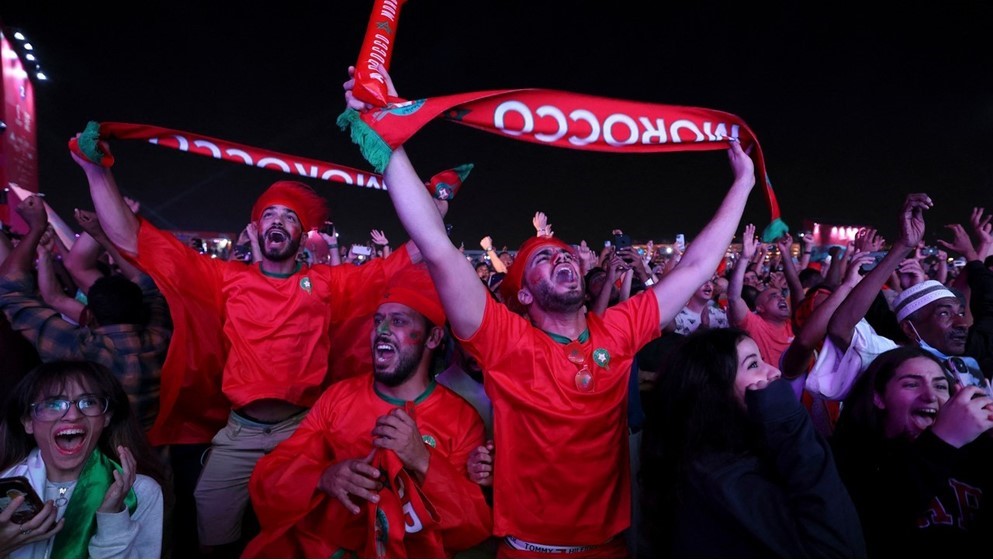Ambitious development plans such as Saudi
Arabia’s Vision 2030 have been the subject of regular media attention,
especially regarding the massive financial resources earmarked to realize them
or the transformative economic impact they could have on their countries.
اضافة اعلان
What is regularly overlooked though, is
their impact on public sentiment and what is broadly referred to as the
national psyche: the collective mindset, attitudes, beliefs, and emotions
shared by citizens of a given country, and the collective consciousness and
identity of its citizens.
This is unfortunate because it is perhaps
what is most interesting about such development plans.
An absence of optimism plays a large role in keeping people trapped in poverty
Countries embarking on ambitious development
plans or those on the brink of significant achievements witness major
transformations in their national psyches and this can have a profound and
lasting impact on how they view themselves, the world around them and their
place in it.
Much has been written, for example, on the
space race between the United States and the Soviet Union during the Cold War,
and the impact the US moon landing had on the national psyche of Americans,
uniting the country with a sense of pride in their technological and scientific
prowess, which lasted well into this century.
There is a common belief that this had
fueled a surge in scientific and technological advancement, had a profound
impact on other industries, contributing to economic growth and innovation, and
demonstrating the superiority of democratic, capitalist values over communism.

In a similar fashion but in a wholly
different context, little has been written about the impact that Qatar’s
hosting of the FIFA World Cup last year had, not only on Qataris, but on Arabs
and Muslims who took pride in the positive image that the tournament portrayed
about their region and religion and validated the belief that the region could
play center stage in such an international event. This may have been all the
more special because it came against the backdrop of significant international
criticism in the lead up to the tournament.
Countries facing major collective crises,
even those with meagre financial resources, can also experience transformative
changes to their national psyche when they successfully triumph against
unsurmountable odds. As a Jordanian, the battle of Karameh of 1968, in which
Jordan’s Armed Forces repelled an Israeli attack into Jordanian territory, is
very present in Jordanian consciousness as the first major military success
against Israel’s military might.
 King Hussein bin Talal pictured alongside Jordan's Armed Forces during Al-Karamah Battle.
King Hussein bin Talal pictured alongside Jordan's Armed Forces during Al-Karamah Battle.
Perhaps the most profound aspect of these
types of transformations is the sense of collective hope and possibility it
creates within a country. Talk to citizens of countries embarking on such transformations
and their can-do attitude is almost palpable. Listen to their governments and
one can sense momentum.
Many of these countries didn’t lack
financial resources in the past; what changed was their self-belief. This can
have a profound impact on stability.
By contrast, a lack of hope can be
devastating for nations as it is for individuals. Researchers at Massachusetts
Institute for Technology (MIT) argue that an absence of optimism plays a large
role in keeping people trapped in poverty, while counterterrorism practitioners
speculate that an absence of hope can be a driver of extremism and
radicalization.
The loss of hope being witnessed elsewhere
across the globe, including (arguably) the United States and the United
Kingdom, can lead to a sense of defeatism, division, and apathy. Worse still is
the sense of cynicism, doubt and disparagement shown by citizens of these
countries towards their governments whenever they embark on a new initiative.
Countries facing major collective crises can experience transformative changes to their national psyche
Perhaps citizens of these countries are not
hopeful about what the future holds or perhaps their governments are unable to
formulate a future vision altogether. This may be why they have to live on
nostalgia and excessively employ it; they are effectively living in the past.
There is an emotional and psychological
aspect to the rise and fall of nations that tends to get overlooked when people
focus exclusively on facts and figures. The reason is obvious: how does one
begin to measure and quantify such an intangible and elusive thing as hope?
This article was originally published on Global Comment.
Read more Opinion and Analysis
Jordan News







